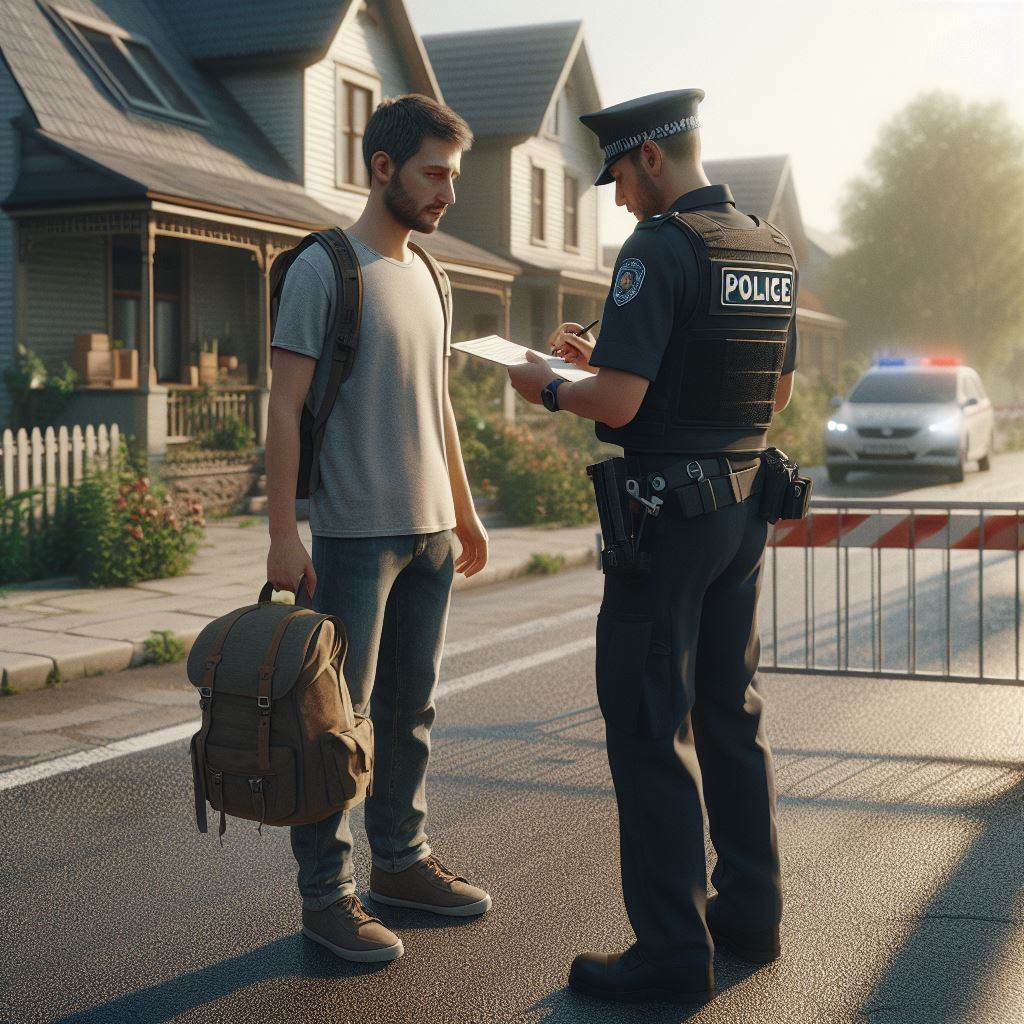MOBILIZATION.
NEW POWERS OF THE POLICE
From now on, the police officer will be able to check through the "Oberig" system whether a person is on military registration and whether a summons was sent to him.
On May 8, a new draft law No. 10449, officially registered as Law 3633-IX, which is designed to strengthen mobilization measures, enters into force. This law consolidates already existing, but so far not fully implemented in practice, rules.
According to the new provisions, the police get the right to check the presence of a military ticket in citizens.
Men between the ages of 18 and 60 must carry documents certifying their military registration and present them upon request not only to TCC employees, but also to the police, as well as to border guards in designated areas.
In addition, the law requires that in addition to the military registration document, the person must provide an identification document that allows the police to read and record information from both documents.
During the inspection, representatives of the TCC and the police have the right to use photo and video recording, as well as special equipment and software to access the Unified State Register of conscripts, conscripts and reservists "Oberig".
Now, both the representatives of the TCC and the police can use the "Oberig" system to check whether a person is registered in the military register and whether a summons has been sent to him. A separate field will be created in the Registry to display subpoenas, as described by the Ministry of Defense. Police officers will also be able to see information about the person's place of registration and work in the Register.The changes will also affect the process of creating information resources by the police.
The police will use information and communication systems to update and maintain the relevance of registers and databases, which are part of the unified information system of the Ministry of Internal Affairs, which relate to persons involved in administrative violations and cases considered by the TCC.
Legislative amendments to the mobilization law expand the powers of the National Police, allowing them to detain individuals and deliver them to Territorial Recruitment Centers (TCC).
The police can now respond to requests from the TCC, the Security Service of Ukraine (SBU) and intelligence services, cooperating with them in the notification of conscripts and reservists. They also have the right to administratively detain and deliver persons who have violated administrative rules related to military registration and mobilization, in particular under Articles 210 and 210-1 of the Code of Administrative Offenses.
In the event that the TCC cannot carry out administrative detention, the head of the center has the right to send the citizen a registered letter with the requirement to fulfill his duty within five days. If the situation is not resolved, the TCC may apply to the court to restrict the person's right to drive a car. If the court grants such a claim, the National Police receives an order to enforce.
The procedure for implementing the restriction of the right to drive a car is currently not defined and it is expected that it will be specified in a separate legislative act.The new law also establishes that the activities of the police, SBU, TCC, local self-government bodies, enterprises, institutions, organizations and medical institutions within the framework of mobilization measures on the territory of administrative-territorial units are coordinated by regional military administrations.
The Cabinet of Ministers of Ukraine must determine the order of interaction between various bodies and institutions during the draft of citizens for military service during the mobilization period. These changes have not yet been implemented.
Professional legal assistance that can be provided by a lawyer during the implementation of the rules of military registration and mobilization
Attorneys who specialize in military matters can provide a wide range of professional legal assistance during the implementation of military registration and mobilization regulations. Here are some of the main services they can offer:
1. Legal advice on military legislation. Analysis of documents and consultation of a lawyer are necessary to determine the extent of violated rights and to choose methods for their protection and restoration.
2. Legal assistance in matters of registration and removal from military registration.
3. Counseling regarding the passing of a medical commission and appeal of its results.
4. Legal protection when charged with evasion of mobilization.
5. Exemption and mitigation of liability for violation of mobilization rules.
6. Preparation of applications, appeals, requests and other necessary documents to the relevant authorities. Checking documents by a lawyer is necessary to find out which rights have been violated.
7. Support in TCC (territorial recruitment and social support center).
8. Legal assistance in registering for military service, obtaining deferments and exemption from military service. A lawyer's legal opinion will ensure the correctness of the chosen method of protection of violated rights.
These services can be especially important in wartime, when the rights and legitimate interests of those who are already serving, as well as those who are only being called up for service, become especially important. Military lawyers can help ensure that the rights and interests of those involved in mobilization are properly protected, and assist in cases where difficulties or conflicts arise with military authorities or the law.
Legal service "Consultant" provides the service "lawyer's help online".
Legal service "Consultant" provides legal assistance in any situation. Our lawyers, having conducted a legal analysis of the situation, will ensure the representation of interests in state authorities or the court, will take part in a court hearing in any city of Ukraine. Legal protection by a lawyer is a guarantee of quality protection of your rights and interests.





























